March 9, 2022
Cultivate Holistic Living with Permaculture Design
Caroline Riley steps into every day with joy, energy, and passion. Hours fly by too quickly as she nurtures wellbeing through her organic nursery Cultivate Holistic Supply, herbal remedies shop Mutable Earth Botanicals, and the classes she teaches for the Austin Permaculture Guild.
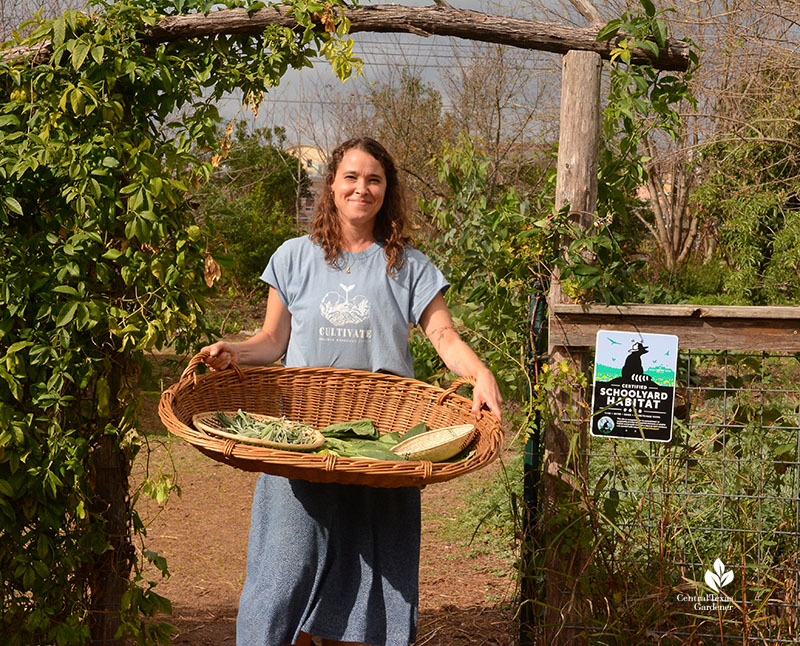
Home base is the Whole Life Learning Center in south Austin, a school for Pre-K to 8th grades that she and husband Michael Carberry started in 2011, the year they married. When we met them and their two young sons in December, the gardens in their Certified Schoolyard Habitat were frost-nipped but still growing strong.
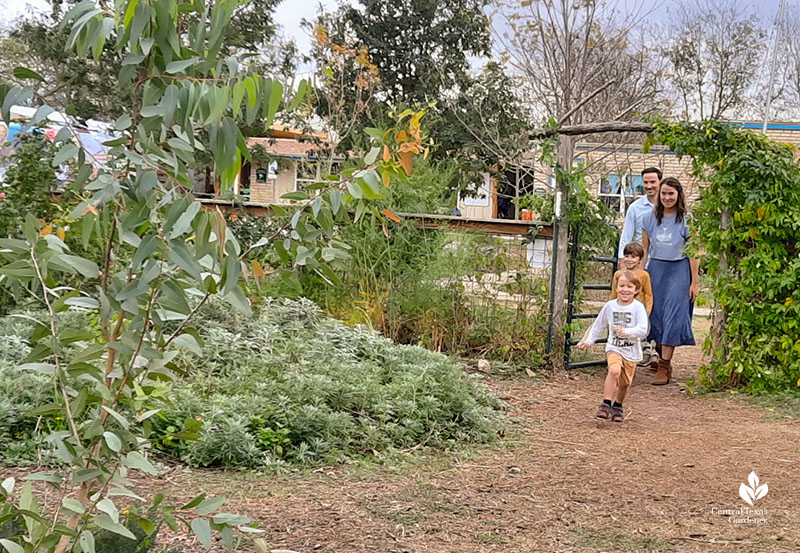
Caroline and Michael’s vision for their dream school embraced a holistic education and commitment to live in greater harmony with each other and the planet. From the beginning, they also wanted to bring together community through education for all—children and adults.
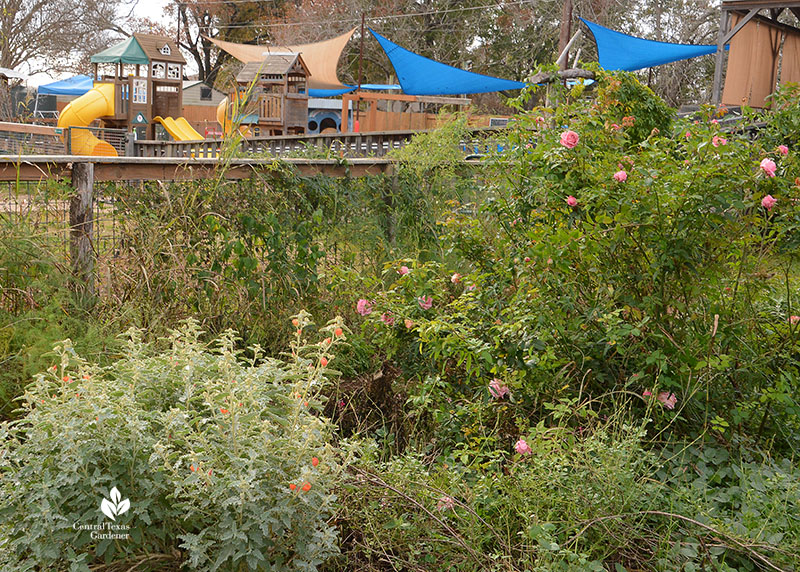
When they started the school, Caroline was also teaching permaculture design classes for ACC students. She and Michael wanted to incorporate ecology lessons into their curriculum through gardens that connect resources, soil health, plants, animals, and people. With many helpful hands on deck, including the ACC students, they dug into the blank grounds to plant a lively food forest from fruit trees to herbs and flowering perennials.
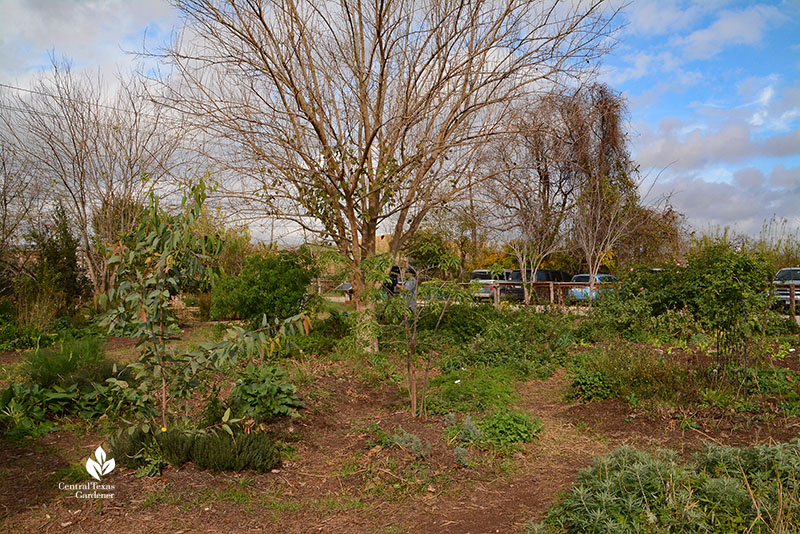
Since Central Texas quickly swings from dust to deluge, their first task was to manage rainfall runoff. Since water is so very precious, they utilize many rainwater catchment techniques to direct and collect it from impermeable surfaces like the parking lot and building roofs. Along with cisterns, they harvest water from the pre-school’s roof, along with gallons of AC condensation piped into a rain garden.
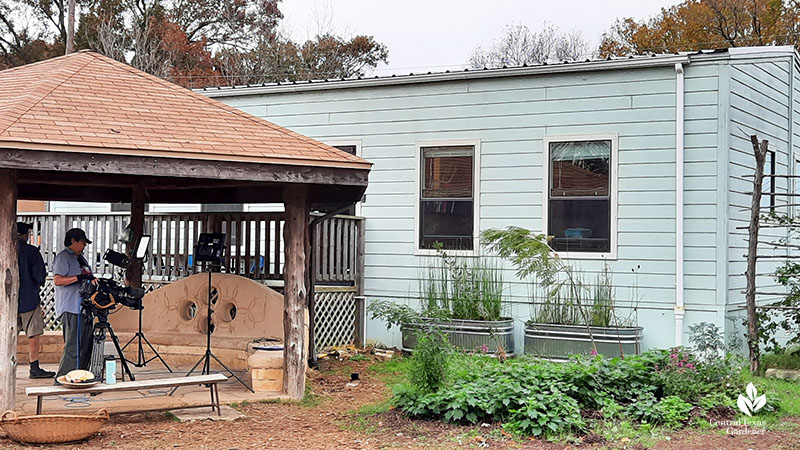
They built berms and swales to slow, spread, and sink rainwater. To mound up the berms, they excavated soil that later became the pond.
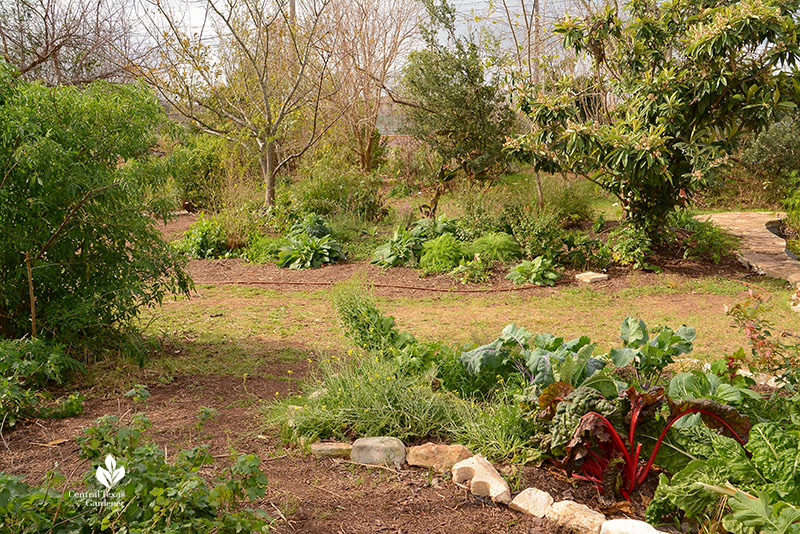
Swales—low depressions in the soil—capture rainfall to infiltrate the berms. When they’re saturated, the overflow fills the little pond, and when it fills, it flows into the next swale and berm system.
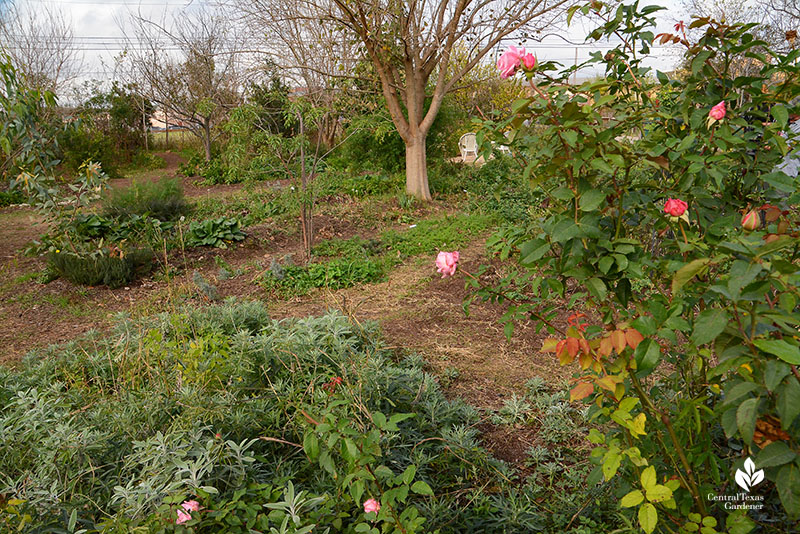
Berms also benefit plants that need good drainage. In one small stretch, Caroline planted a sensory array of edible, medicinal, and pollinator plants with soft and touchable mullein, pink-flowered agastache, red-blooming tropical sage (Salvia coccinea), feathery yarrow, and lamb’s quarters.
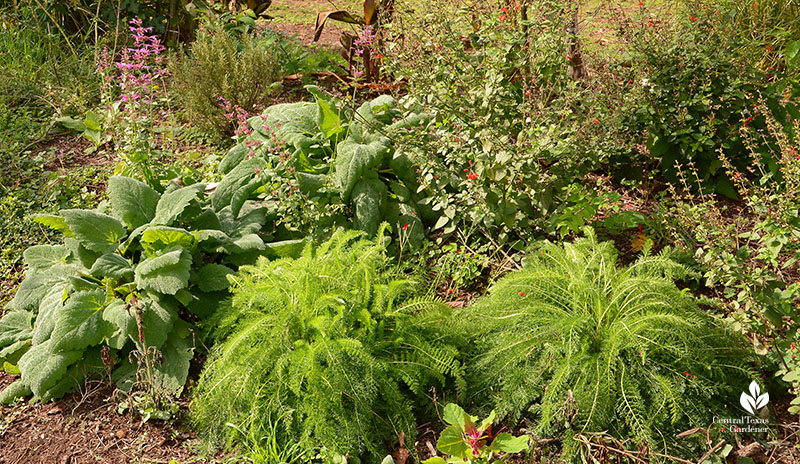
What IS permaculture? “I could distill permaculture into one sentence and oversimplify. I would definitely say it’s sustainable design. We could take it further and say regenerative design: the idea of creating a space that over time is more diverse. We’re creating healthy, diverse ecosystems that are not just for us, they’re for every living creature in the space. And that includes the living soil. We start there and actually value the soil more than anything,” she said.
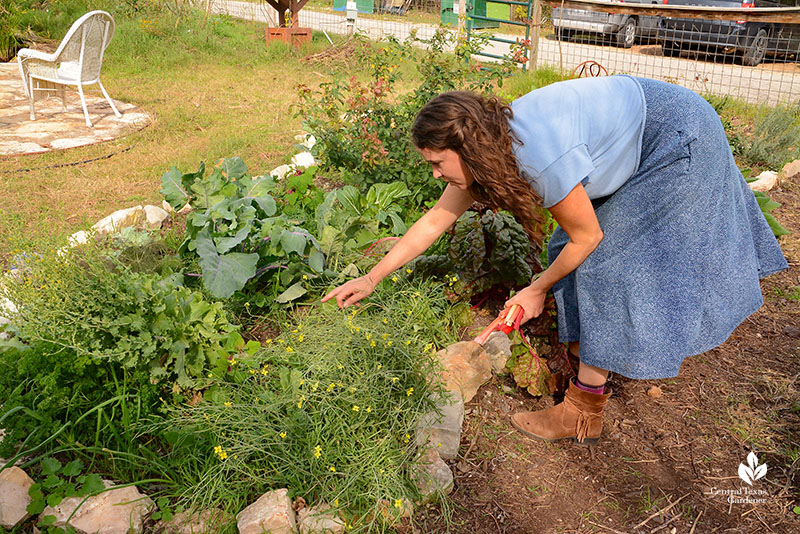
Caroline sees all plants as an important piece of the ecosystem. “Sometimes we just utilize them by recycling them back in to grow soil. And sometimes we utilize them as medicine and as food, and we see how they feed the pollinators and the birds and the deer and all the creatures.”
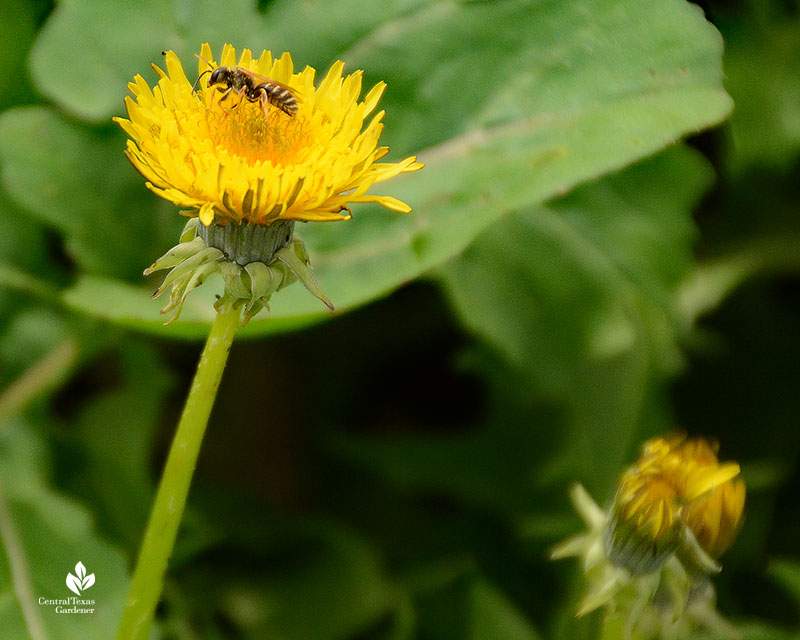
From the start, they planned a pond for its valuable impact on the ecosystem. “And we dreamt of having a pond be the center of our ecology study here and also be that the place where people can come and have like a sense of wonder, a break for the day. We see our teachers take breaks there,” she said.
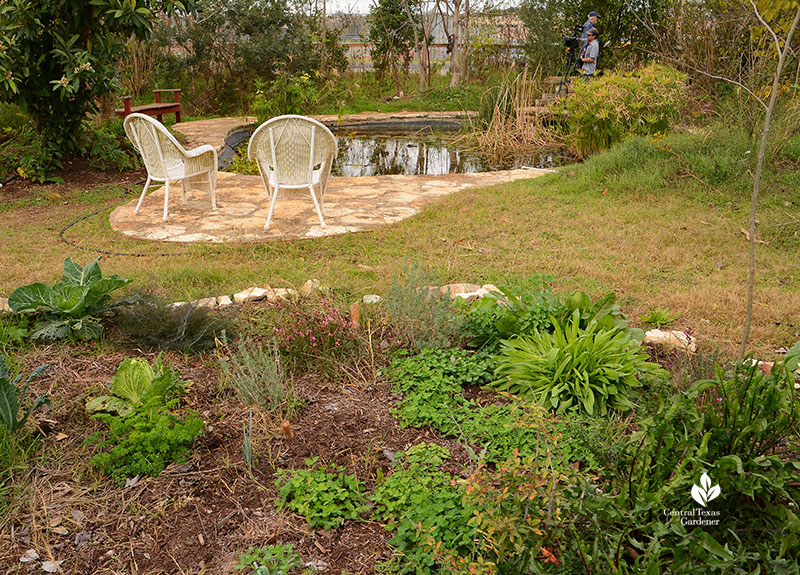
The hole dug when the berms were built sat idle for a few years. Eventually, permaculture students installed the pond liner. With a Bright Green Futures grant (offered for school-based sustainability projects), they completed the stone work and its fountain. A photovoltaic panel powers the pump and illustrates the relationship between sun and electricity.
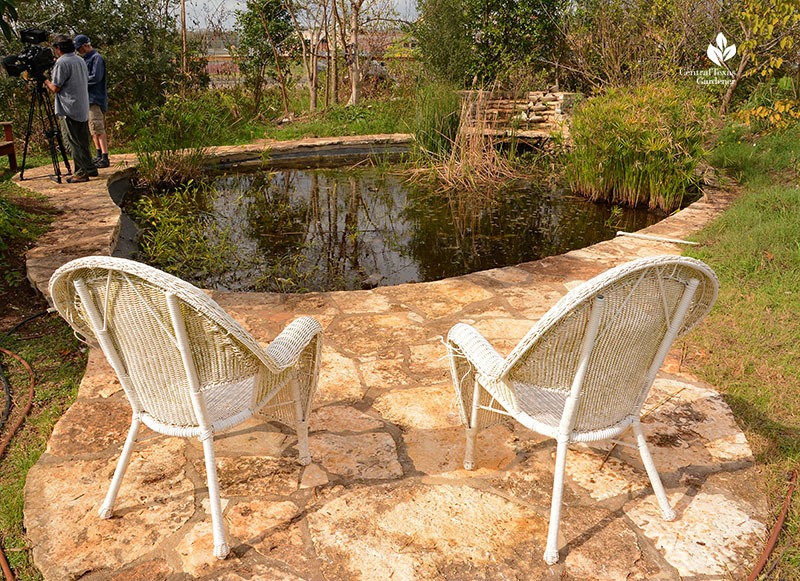
“[Teachers] bring their science class up there, or maybe a creative writing class, but they’re up there studying aquatic invertebrates and getting them under the microscope,” Michael said.
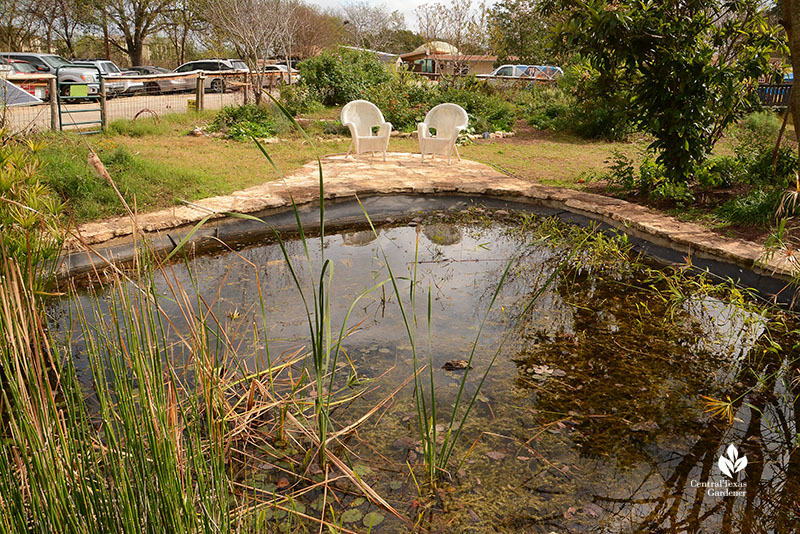
Everyone takes a break to chat with the chickens and funny goats. Don’t miss videos of the adorable newborn goats and their antics on Caroline’s Instagram!
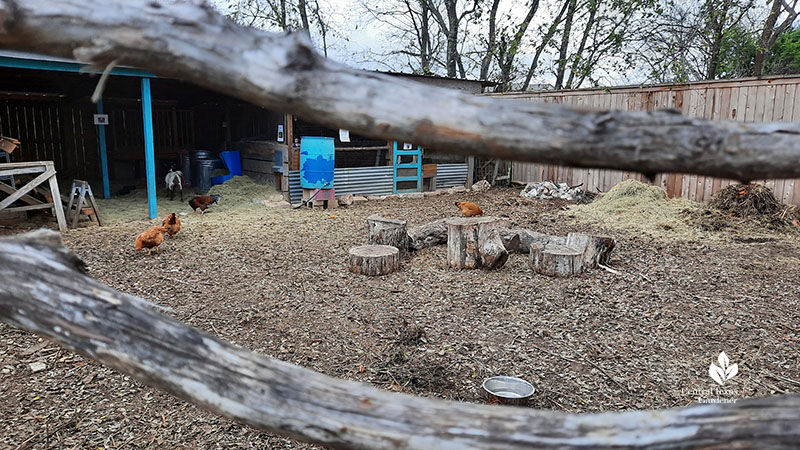
Michael noted, “The animals here bring us joy. If a kid is having a tough morning, a slow start, we might ask if they want to come help feed the chickens or the goats and boy, their day just can shift like that because there’s just something that happens when we get to be with those animals.”
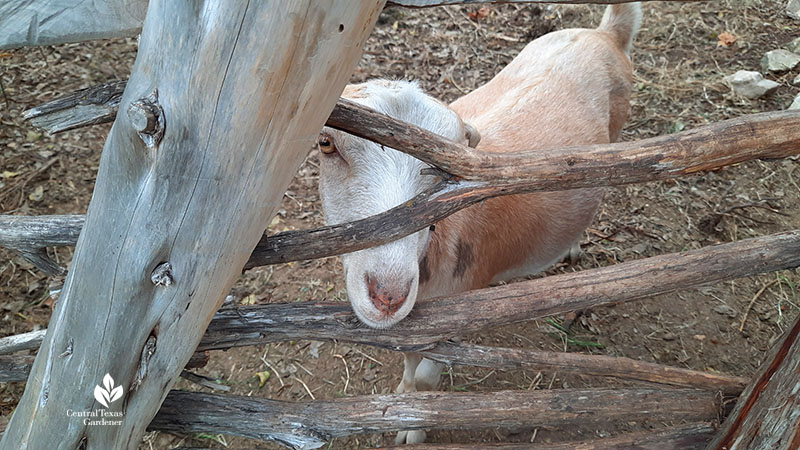
In recent years, Caroline’s gravitated to growing more herbs and other medicinal plants in the food forest.
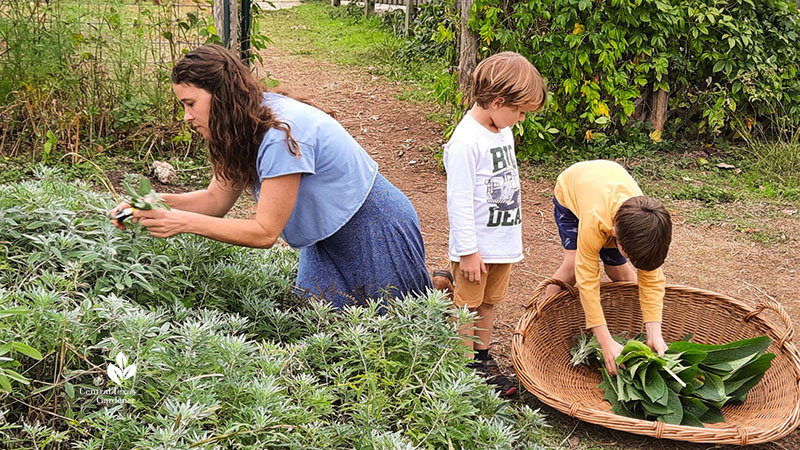
They turned the geodesic dome into an apothecary where she prepares organic harvests for herbal teas, medicinal tinctures, oils, and salves.
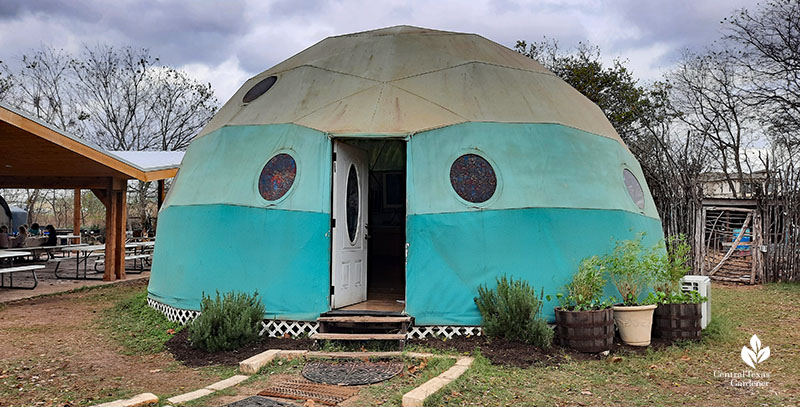
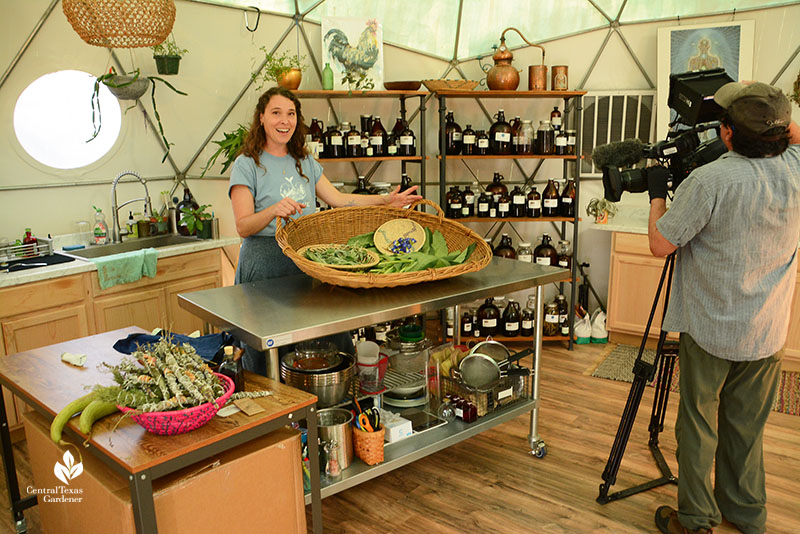
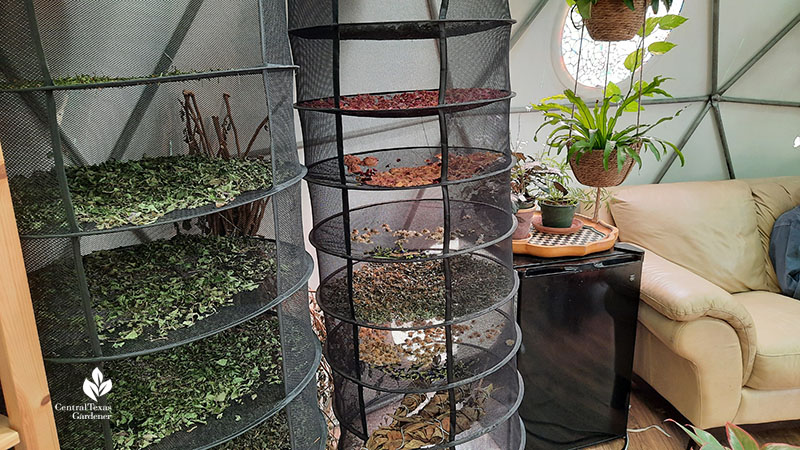
She sells them through her online shop Mutable Earth Botanicals and at her new nursery shop. Also, check out Mutable to sign up for her herbal classes.
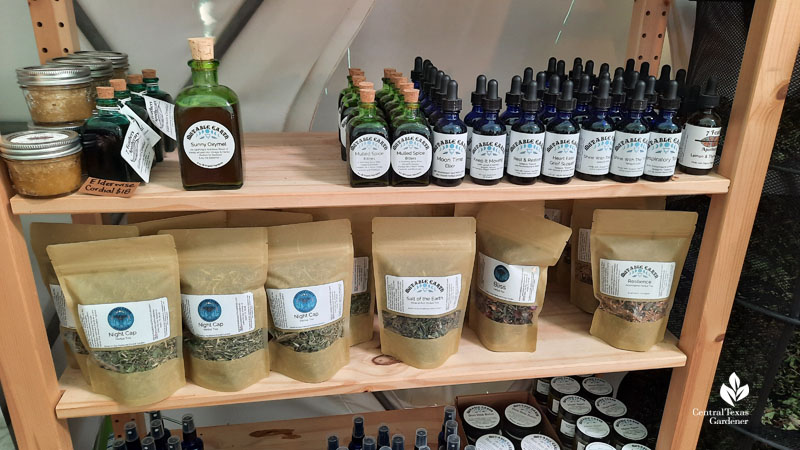
When the pandemic shut things down, Caroline nurtured another dream. She reached out to horticulturist Lexi Nutter to create something new and special.
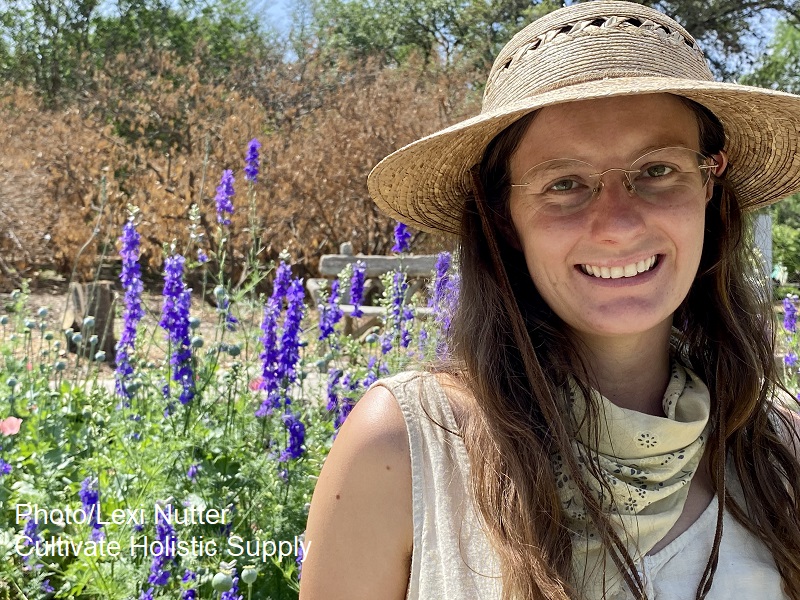
In October 2020, they opened a small nursery in Whole Life’s side yard, Cultivate Holistic Supply. Now Lexi and Caroline are growing another exciting dream: they just signed on for land nearby to launch a larger nursery complete with café and amenities for group events.
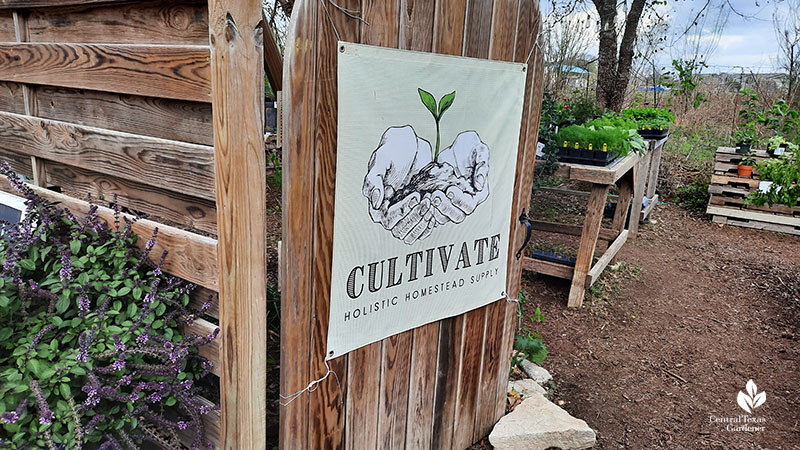
During our visit, we also met regenerative gardener Taelor Monroe. Owner and co-director of the Austin Permaculture Guild, she studied under Caroline in 2014, and helped transform Whole Life’s grounds into beautiful permaculture gardens.
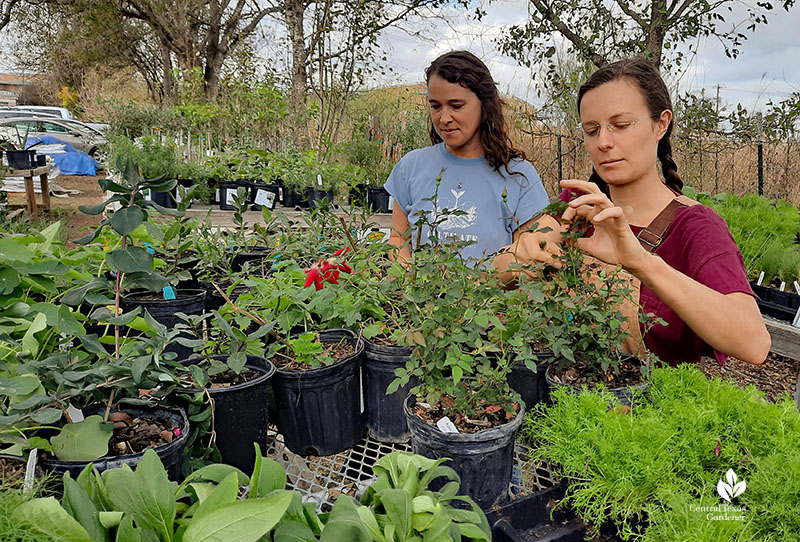
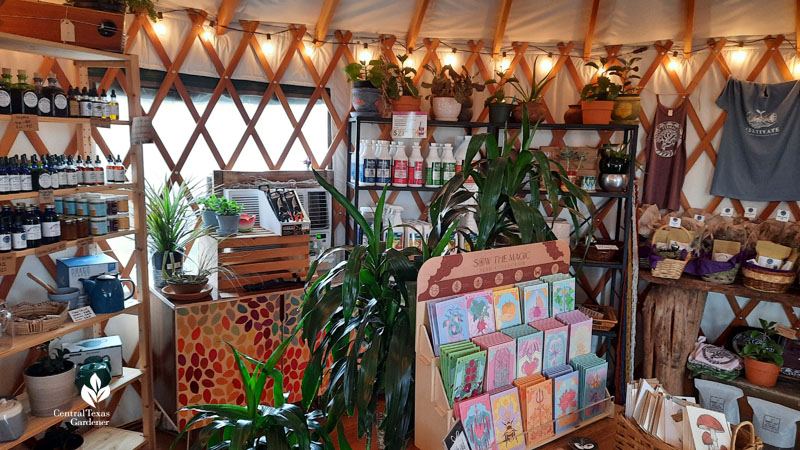
Long before I met Caroline, I’d seen her impact on the community in beautiful gardens we documented. One was Cosmic Coffee + Beer Garden, where founder Paul Oveisi designed permaculture techniques into his hospitality venue after taking Caroline’s classes.
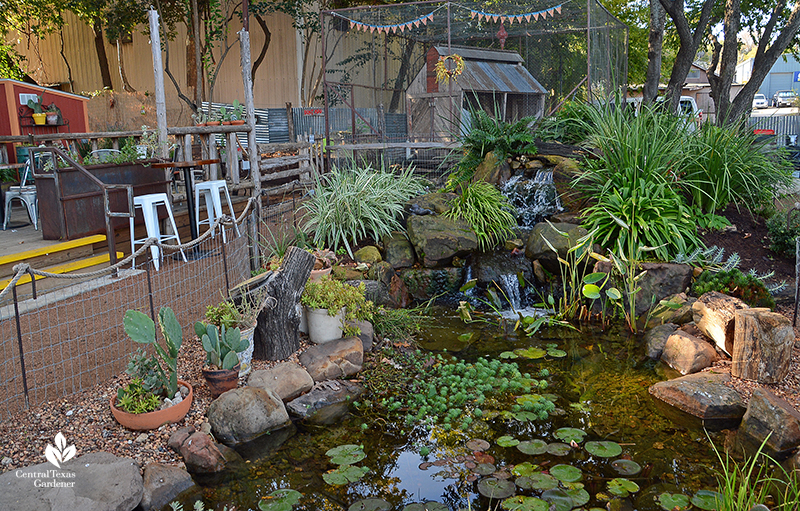
Earlier last fall, we met Suthi and Sanjay Nagar, new gardeners that were also new to Austin. With Austin Permaculture Guild’s instruction and Caroline’s herbal classes, they transformed their small, plain front yard into a miniature food forest and wildlife habitat.
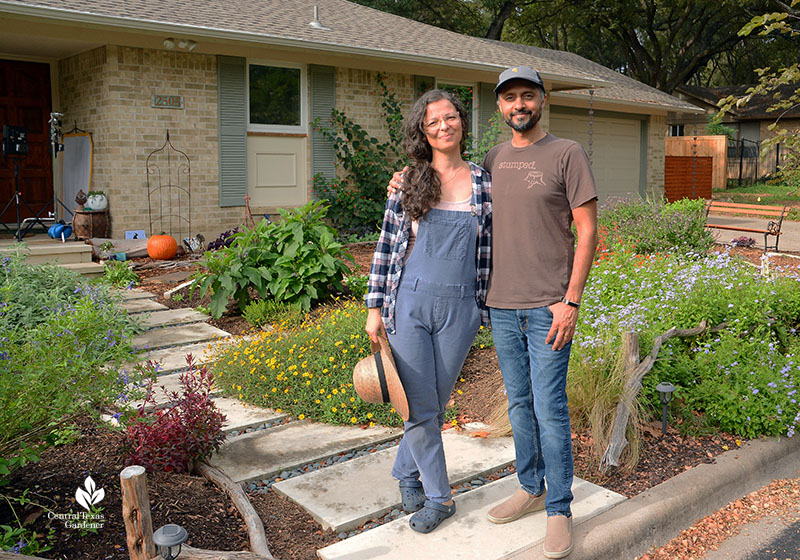
“And really, the dream is to help people create their food forest and create their medicine garden and create their home vegetable garden and really create the garden ecosystem in a way that we’ve done here,” Caroline said.
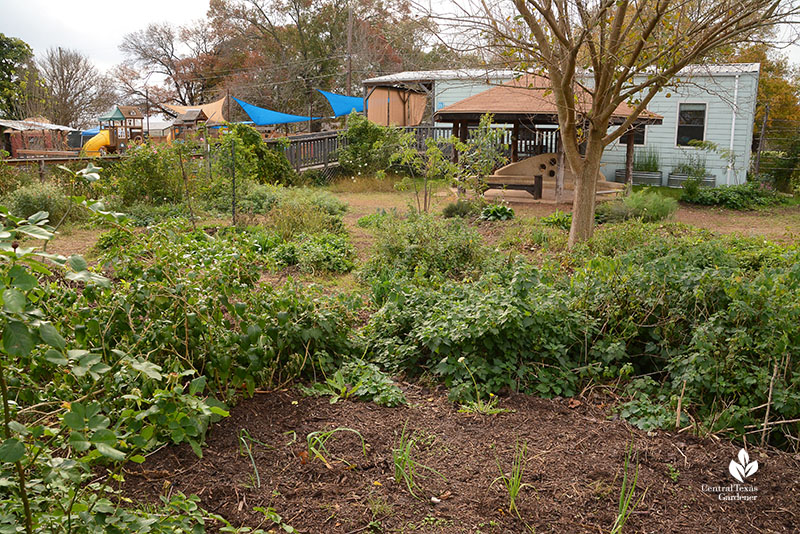
Check out Cultivate Holistic’s website and follow them on Instagram for all their events, including their Spring Market on March 13 from 11 – 4 p.m. Along with lots of plants, meet local makers and listen to live music while sipping herbal mock-tails.
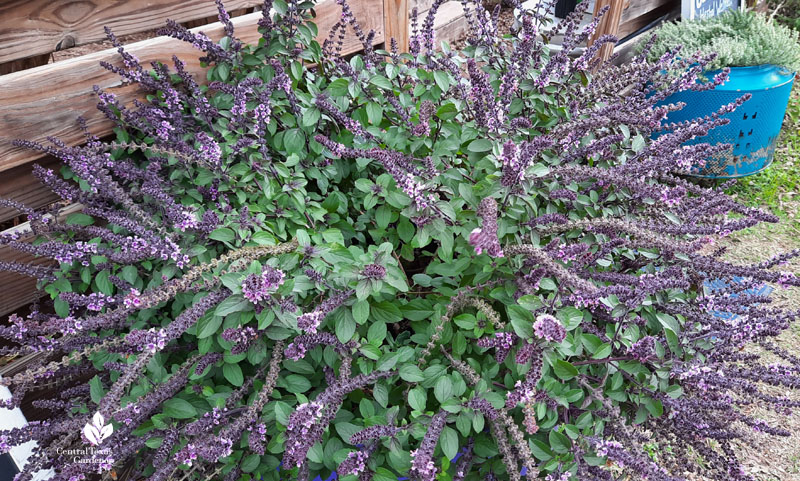
Watch their story now!
Thanks for stopping by!
Linda
tags:

